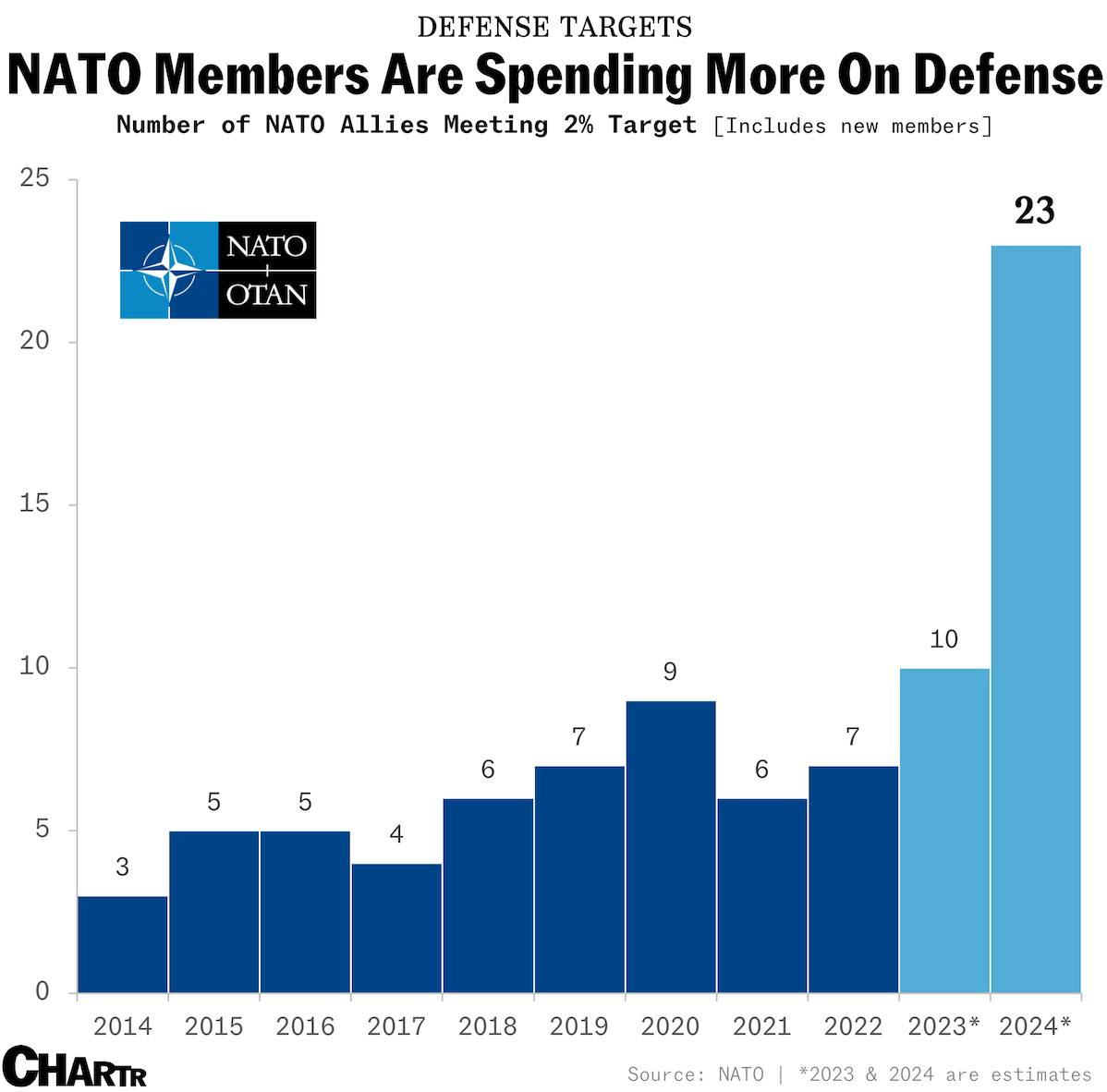A record 23 out of the 32 NATO member nations are set to hit the alliance's 2% of GDP defense spending target this year, as member nations sharply increase spending, according to a NATO report released on Monday.
The 2% guideline was agreed upon a decade ago, in the wake of Russia's annexation of Crimea, when only three allies — the United States, Britain, and Greece — met the target. However, Russia’s invasion of Ukraine in 2022 has shifted global priorities and launched military spending to the forefront of policy discussions. NATO analysis reveals that defense expenditure is estimated to have increased more than 9% in 2023 and is set to rise a further 18% in 2024, those are real gains — i.e. over and above the rate of inflation.
In the last 18 months, once-neutral Sweden and Finland have joined the alliance, further bolstering NATO's annual expenditure by $16 billion, though no nation, within or outside the alliance, comes close to the United States' budget. In 2024, America's defense spending is expected to reach a colossal $968 billion, which will be some 65% of NATO's total.
Military aid was one reason the Congressional Budget Office yesterday revised up the nation's budget deficit, which is now estimated to increase by 27% this year. Relative to the size of its economy, the US is actually not the biggest spender in NATO — Poland, which shares a 140+ mile border with Russia, spends more than 4% of its GDP on defense.
